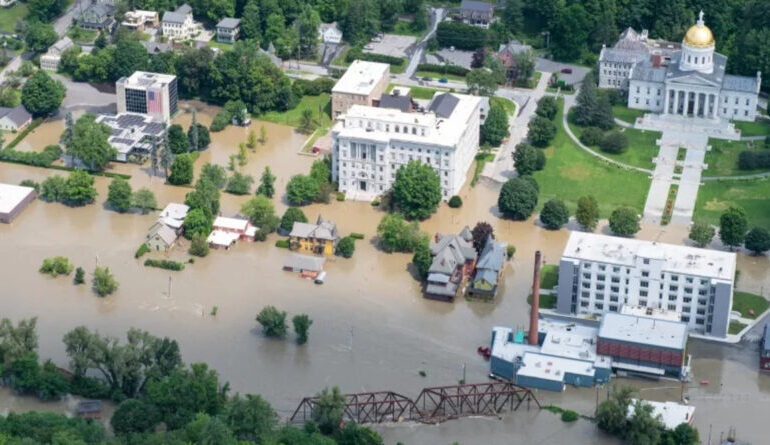U.S. Administration Moves to Challenge Vermont’s Climate Superfund Law

The U.S. administration has filed a lawsuit against the state of Vermont, seeking to invalidate the Vermont Climate Superfund Act, a law designed to hold fossil fuel companies accountable for climate-related damages. According to the administration, the law conflicts with federal authority and regulates activities outside the state without a legitimate connection to Vermont. This legal challenge, initiated on September 15, 2023, raises significant questions about the balance of power between state and federal governments.
The Vermont Climate Superfund Act, enacted in May 2024, allows the state to recover costs associated with climate change, specifically targeting financial damages inflicted by the fossil fuel industry. Vermont Treasurer Mike Pieciak emphasized the importance of this legislation, stating, “To support the health, safety, and prosperity of our communities, we must ensure Vermont is equipped financially to address the impacts of climate change.” The funds generated from this act would be directed toward climate adaptation projects, particularly crucial for low-income communities that have been disproportionately affected by recent flooding.
Vermont’s Secretary of Natural Resources, Julie Moore, also highlighted the pressing need for accountability from fossil fuel companies. “Vermont has seen firsthand the significant impacts that climate change is having on our environment and our economy,” Moore noted. This sentiment is echoed by various Vermont organizations advocating for environmental justice, including the Vermont Public Interest Research Group, led by Paul Burns. Burns stated, “This law is about holding Big Oil accountable for a portion of the damage it has already brought to Vermont’s farms, businesses, homeowners, and communities.”
The administration’s legal brief characterizes the Vermont law as a “lawless experiment” that undermines federal supremacy. It calls for a summary judgment, arguing that the state law poses a threat to federal power. Critics of the lawsuit contend that it represents a broader trend of federal overreach in environmental policy, especially as the administration has previously sought to halt enforcement of climate-related regulations.
The pushback against the administration’s lawsuit has been robust. Grace Oedel, executive director of the Northeast Organic Farming Association of Vermont, remarked, “Vermont clearly has the right to raise funds and protect the well-being of its people.” This perspective is supported by research linking specific fossil fuel emissions to extreme weather events, as highlighted in a recent study published in the journal Nature, which establishes a direct connection between emissions from 180 fossil fuel and cement producers and the intensification of heat waves from 2000 to 2023.
The federal government’s challenge comes in the wake of previous lawsuits against both Vermont and New York over similar climate Superfund laws. These laws, rooted in the “polluter pays” principle, aim to ensure that polluting industries contribute to the cost of environmental recovery and adaptation. In August, the administration also cancelled over $62 million in federal funds for solar projects in Vermont, further igniting tensions between state and federal authorities.
Environmental advocates continue to rally around Vermont’s legislative efforts. Kate Sinding Daly, senior vice president for law and policy at the Conservation Law Foundation, reinforced the necessity of the Vermont law, stating, “This law is not a sweeping effort to regulate global greenhouse gas emissions or punish fossil fuel companies. This is Vermont using its legal right to raise revenue and protect the health, safety, and well-being of its residents from the ruinous consequences of climate change.”
As the legal battle unfolds, the implications of this case extend beyond Vermont. It will test the limits of state authority in environmental regulation and the federal government’s role in climate policy. The outcome could set a significant precedent for how states may pursue accountability for climate impacts in the face of federal opposition.






